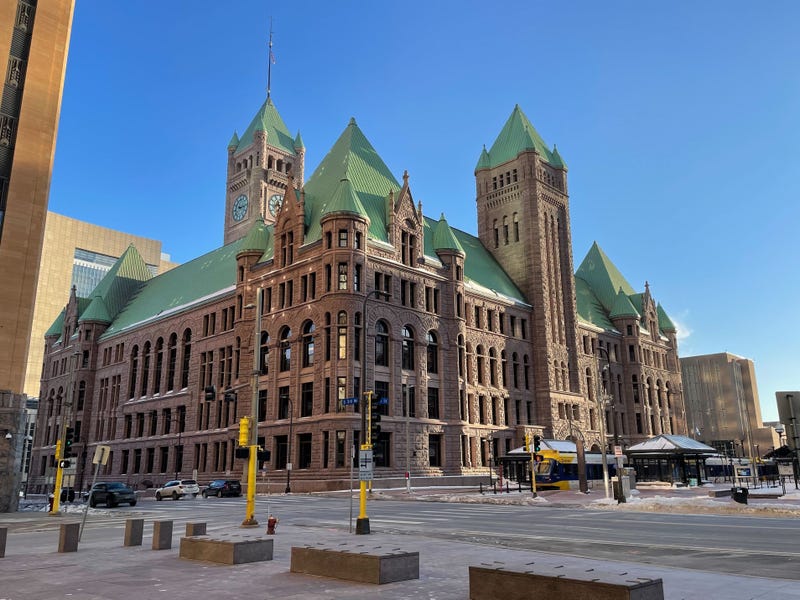
A 25-person Inclusive Economic Recovery Work Group assembled by Minneapolis Mayor Jacob Frey in November 2021 delivered recommendations to city leaders on Monday morning that they believe will provide a more inclusive economic recovery as the area deals with fallout from the pandemic and 2020 riots after the death of George Floyd.
The work group, which was the second of three external work groups formed by Frey, met five times between December and mid-February to form their report and advise Frey.
"They've all come around a common cause which at the end the end of they day is getting back not to the old normal, but blowing by that old normal and recognizing that every single day here, as we recover from a combination of a global pandemic and unrest, that this is an opportunity to do things differently," Frey said.
The work group's report, found here, focused on workforce, housing, entrepreneurship and small business.
"In this, we wanted to make sure that we didn't reinvent the wheel, but that we continued the work done by the Minneapolis Forward Community Now Coalition that the mayor set up in the wake of the 2020 unrest," said work group co-chair, PJ Hill. "We tried to build off their recommendations and tried to take it to another level."
Hill, who is Vice President of the Minneapolis NAACP, said that when it came to economic development, it was critical to focus on individuals who have historically been "left out" of the conversation.
"We also wanted to leverage strategic partnerships knowing that as a whole we're greater than a sum of our individual parts," added Hill.
Adam Duininck, Director of Government Affairs, North Central States Regional Council of Carpenters, joined Hill as co-chair of the work group.
"The biggest thing we started with is by asking how we could align our resources, how do we think about what the city does and what we could do better, and how do we work together the public, private, and non-profit sectors to expand our reach as a city," Duininck said.
Duininck said one opportunity was to align housing with workforce goals.
"There's such a great opportunity in this region right in terms of needs for workers in construction, IT, healthcare and many different sectors," he said. "And there's a lot of great groups doing workforce readiness. How to support youth was also a big topic of conversation to get them ready for jobs of the future."
When it came to housing, Duininck added that ownership amongst BIPOC communities was a critical topic of conversation.
"We talked about not just what we are doing as a city, but regionally," he said. "It's such a regional issues. How do we add the supply or cut through the challenges when it comes to ownership of a home?"

Frey added that BIPOC ownership is also critical and said he highlighted that as an area the work group suggested the city initiate or double-down on moving forward.
"Our commercial property development fund enables business owners, or would-be business owners not to own not just the underlying business, but also the underlying real estate," Frey said. "So that when the gains comeback, and values go up yet again, they don't get displaced from the neighborhoods that they made wonderful to begin with."
Frey added that he will announce how the recommendations fit into a broader investing plan that will include the second round of American Rescue Plan Act funding.

